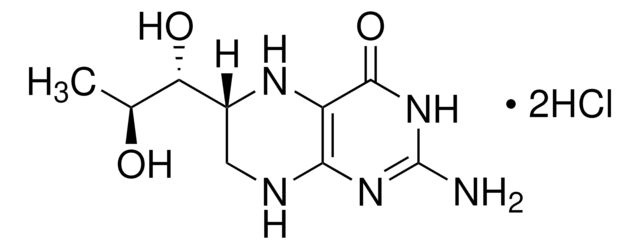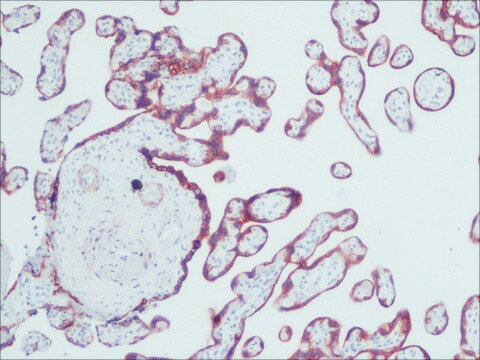C8541
Monoclonal Anti-Cytokeratin Peptide 18 antibody produced in mouse
clone CY-90, ascites fluid
Sinónimos:
Monoclonal Anti-Cytokeratin Peptide 18
About This Item
Productos recomendados
biological source
mouse
Quality Level
conjugate
unconjugated
antibody form
ascites fluid
antibody product type
primary antibodies
clone
CY-90, monoclonal
contains
15 mM sodium azide
species reactivity
wide range
technique(s)
indirect immunofluorescence: 1:800 using formalin-fixed, paraffin-embedded sections of human tissue
western blot: suitable
isotype
IgG1
shipped in
dry ice
storage temp.
−20°C
target post-translational modification
unmodified
¿Está buscando productos similares? Visita Guía de comparación de productos
General description
Specificity
Immunogen
Application
- immunofluorescence
- fluorescence microscopy
- confocal fluorescence microscopy
- immunolabelling
- histoblots
Biochem/physiol Actions
Disclaimer
¿No encuentra el producto adecuado?
Pruebe nuestro Herramienta de selección de productos.
Storage Class
10 - Combustible liquids
wgk_germany
WGK 3
flash_point_f
Not applicable
flash_point_c
Not applicable
Certificados de análisis (COA)
Busque Certificados de análisis (COA) introduciendo el número de lote del producto. Los números de lote se encuentran en la etiqueta del producto después de las palabras «Lot» o «Batch»
¿Ya tiene este producto?
Encuentre la documentación para los productos que ha comprado recientemente en la Biblioteca de documentos.
Nuestro equipo de científicos tiene experiencia en todas las áreas de investigación: Ciencias de la vida, Ciencia de los materiales, Síntesis química, Cromatografía, Analítica y muchas otras.
Póngase en contacto con el Servicio técnico






